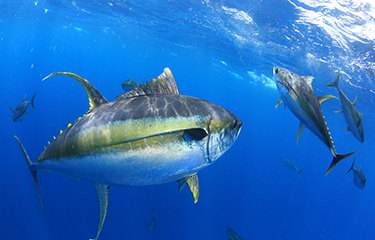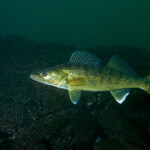For signatories to Tuna 2020 Traceability Declaration, progress is tangible

Seafood companies across the tuna supply chain are making strides toward meeting the four commitments that are part of the Tuna 2020 Traceability Declaration.
The Global Tuna Alliance – a consortium of companies seeking to improve the tuna supply chain – surveyed the 66 companies that signed the declaration in 2017 to assess their progress, compiling the results in a report to be released soon. About two-thirds of companies responded.
The survey evaluated companies on four measures linked to the declaration – traceability, social responsibility, environmental sustainability, and government partnerships – analyzing what companies need to do to meet the commitments in the declaration, and what challenges they face in doing so.
In many ways, achieving full transparency and traceability are the keys to the other commitments, according to Winnie Yeh, who leads the traceability action track of the World Economic Forum’s Friends of Ocean Action and works with the Global Tuna Alliance.
"Because of the lack of transparency, it is difficult for consumers to know if a fish is not just legally sourced but if it comes from a sustainable fishery, or if the supply chain has fair labor practices," Yeh said during a webinar announcing the report. "Without traceability, it is difficult to know if a socially responsible or environmentally sustainable tuna supply chain exists."
Nearly all of the companies – from the fishers, processors, and distributors to retailers and food service – reported that they could trace their tuna products to vessels and trip dates. The rest of the companies said they could trace to particular fisheries, but not precise vessels or trip dates.
Companies cited interoperability in traceability systems as the prominent problem, but expressed optimism about solutions. Across the seafood sector, new standards for what traceaiblity data to collect and how to package that data are emerging. This week, the Global Dialogue on Seafood Traceability (GDST) released its 1.0 standards, which are meant to ensure that the hundreds of traceability software systems can communicate with each other and share data.
"Significant progress has been made by signatories, but interoperability remains a problem," Global Tuna Alliance Executive Director Tom Pickerell said during the webinar.
While some companies have systems to verify and ensure social responsibility – safe labor conditions, adequate pay, fair contracts – on land, they struggle with how to do the same at sea, saying they need clearer standards and third-party auditors able to verify conditions on vessels.
Almost two-thirds of respondents said their tuna supply chains are slave-free, but less than one in five said they had third-party verification that could prove it. Uncertainty about the social conditions increases the further companies are along the supply chain. Companies cited a need for third party, auditable standards for condition on vessels, and some have gone so far as to develop in-house processes that they can use to audit their suppliers.
Companies were stymied by the scope and complexity of addressing social conditions, which can include everything from coercive treatment of workers to abusive recruitment practices to forced labor, child labor, and human trafficking.
"The at-sea portion of the supply chain has always been particularly at risk for human rights abuses," Pickerell said.
A few standards currently hold promise to become global benchmarks, including SeaFish's Responsible Fishing Vessel Scheme and the Seafood Task Force tuna vessel standard. In addition, the United Nations' Food and Agriculture Organization is working on draft guidelines on social responsibility in fisheries and aquaculture, based on the International Bill of Human Rights and standards put forward by the International Labour Organization.
So far, 23 companies have pledged to source tuna from fisheries that meet commitments for environmental sustainability. Only three companies source all their tuna from fisheries certified by schemes benchmarked by GSSI. Only 25 percent of global tuna production is certified, however, limiting the potential supply. Almost half of the companies said they planned to increase sourcing from Marine Stewardship Council-certified fisheries or from fishery improvement projects (FIPs) in 2020, an indication that demand for certified tuna is not falling.
The survey responses seem to indicate that companies struggle with environmental sustainability commitments because of lack of support among customers for FIPs and because of inaction by regional fishery management organizations, Pickerell said.
Companies also struggle to engage with governments, and so far have only done so for the development of harvest strategies and harvest control rules. They've neglected to work with governments on agreements, namely ratification of the Port State Measures Agreement, the ILO's Work in Fishing Convention, and the Global Record of Fishing Vessels. Companies feel they lack leverage to engage with governments on their own.
The self-reported results were fed into dashboards for the companies to be able to get a fast look at their progress across various metrics, with an overall performance score. Another survey will be sent out later this year to assess final results.
"We hope that all the companies, all the signatories, will respond to the final survey at the end of the year," Pickerell said.
Photo courtesy of Al McGlashan/Shutterstock






Share